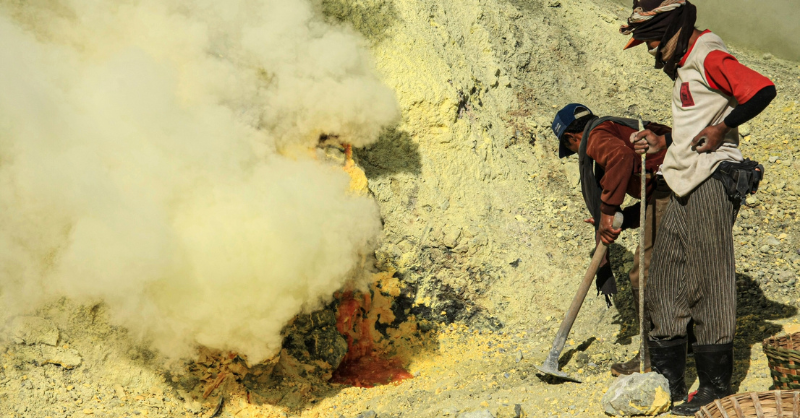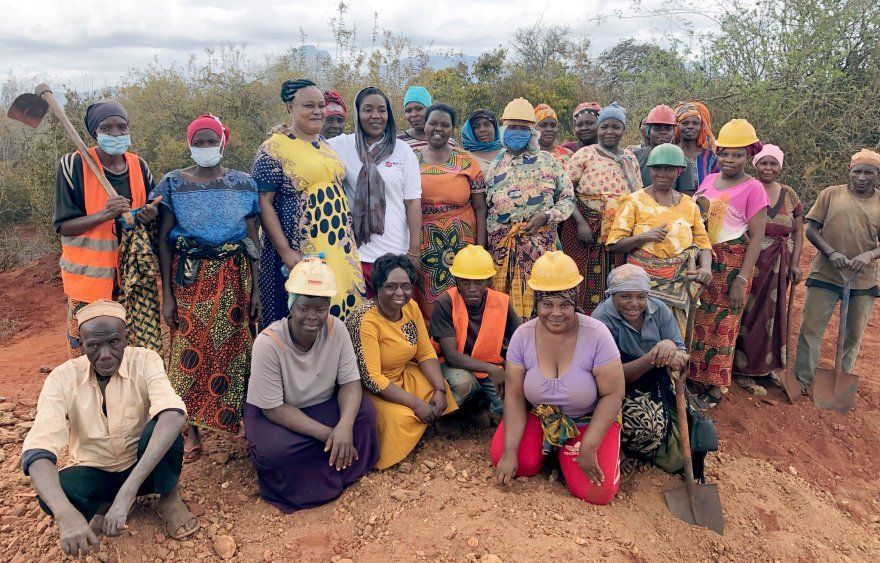
Artisanal Mining – No Longer Invisible (a round up)
Artisanal mining deserves more attention. In the last of his series, Rob Karpati summarises why it's important, and the practical steps being taken to solve the challenges.
At the beginning of 2023 we asked Rob Karpati, from the Blended Capital Group to write us a series of blogs on Artisanal Mining. Little did we know then where this would go.
Not only have the blogs encouraged debate, but they have also raised awareness that the challenges around 'solving' artisanal mining, were a microcosm of many of the challenges involved in the sustainability transitions. If we lived in Europe, it was too easy to export the bad stuff, and pretend it has gone away. A classic 'out of sight, out of mind'.
In today's blog Rob summarises his series. Why artisanal mining is important as a sustainability transition, some of the possible solutions (that we are now seeing working on the ground), and by implication, how what we learn from thinking about artisanal mining can also be applied to other sustainability challenges.
We hope that artisanal mining is no longer the invisible problem.

The details
At the beginning of 2023 we asked Rob Karpati, from the Blended Capital Group to write us a series of blogs on Artisanal Mining.
At the beginning our motivations were simple. From the work we had done on Renewables, EV's and Batteries, we knew that some of the production of the raw materials that they rely on was problematic at best, and massively damaging to our social and environmental systems at worst. Our idea was that Rob's blog's would form part of a series we would do on mining and raw material production.
After all, if we wanted more Renewables, EV's and Batteries, then as investors we also needed to think more about where the essential raw materials came from. It was not enough to say, we can just invest in the 'good things' and ignore the other aspects.
As Rob's blogs started to come in, we realised that Artisanal Mining was important for another reason as well. The challenges around 'solving' artisanal mining, were a microcosm of many of the challenges involved in the sustainability transitions. If we lived in Europe, it was too easy to export the bad stuff, and pretend it has gone away. A classic 'out of sight, out of mind'.

Other examples range from palm oil, through coffee, to steel production and chemicals. Issues covered included human rights, environmental damage, and a just transition.
Unsurprisingly, given this, Rob's blogs turned out to be some of our most popular, at least in terms of response and feedback.
This is now Rob's final article in the Sustainable Investor series on Artisanal Mining (ASM). Hopefully this is not the end of our relationship - the mining industry is both essential to our sustainable future, and a source of concern for many. We need to keep shining a light, not so much on the problems (which are well covered by other's), but more on the solutions. It's the solutions that will enable investors to positively contribute to making the sustainable transitions happen in a financially viable way.
Before we hand over to Rob ....in the interests of keeping our compliance advisor sane, this is not an endorsement of Rob, or The Blended Capital Group. As always, we aim to inform, educate and stimulate debate by challenging popular misconceptions.
Artisanal Mining – No Longer Invisible
Rob Karpati: the Blended Capital Group
The purpose of these blogs has been to increase visibility on the far too invisible sector, while highlighting approaches and implications of formalization. This article will summarize what has already been written, while highlighting both the importance of the sector and approaches that make sense for enabling both the dignity and productivity of work for artisanal miners.
At a basic level, ASM is huge as well as economically significant.
With 45 million miners operating in over 80 countries, approximately 230 million individuals are fully supported by ASM when including the families of miners. With a further 134-269 million people selling various goods and services to these miners, opportunities for sustainable development are massive. From the perspective of global value chains, ASM is also economically significant, producing 20% of the world's gold, 80% of global sapphires, along with significant quantities of critical minerals that are needed for the energy transition including 20% of worldwide cobalt production, and significant copper tonnage.
Sheer scale makes the sector important, as does the social implications of ASM. There is broad diversity across the sector, but all too often artisanal miners lack rights and live in poverty traps, essentially near the bottom of economic hierarchies in many countries. Scourges like child labor, forced labor and mercury contamination are endemic across meaningful parts of the sector.
Formalization - the solution but how?
There are different words used to summarize opportunities in the sector - formalization, professionalization, legitimization. Regardless of the word, the opportunity is to shift toward predictable economic relationships in the sector with both suppliers and customers. Where miners have the critical mass to govern these relationships toward collective value.
Predictable business relationships are the basis for enhanced productivity, elimination of critical issues that include human rights abuses, enablement of sustainable development in the regions that surround artisanal mining and assurance of responsible sourcing in the downstream value chain.
Key concepts that are essential for formalization include:
- the perspectives of artisanal miners are central to solution design - formalization approaches are developed collaboratively in ways that make local sense, as opposed to being externally imposed or defined in cookie-cutter fashion
- the entire value chain matters - sustainable shifts in outcomes start with local socio-economic realities and the voices of miners and neighboring communities, but take downstream intermediates, refineries and end customers into account in order to determine what solutions make the most sense. Thinking across the value chains means that traceability can validate that responsible mining standards are used with minerals flowing into and beyond refineries, and that reputation risk based on supply issues are reduced all the way through to the end customer
- legal frameworks are table stakes - artisanal miners represent facts on the ground, extensions of communities who have often been mining long before Large Scale Mining (LSM) projects arrived. Being clear that ASM is legal, and outlining rights as well as responsibilities of the sector as well as of those who interact with the sector is essential for being able to create predictable business relationships through formalization that are key for broader development
- a variety of stakeholders matter - ASM interacts with large scale mining companies, which makes LSM participation and support of ASM formalization important; government alignment matters for enhancing the sector, both in terms of statutory frameworks as well as broader public policy support; other stakeholders that intersect with ASM also need to be considered when defining what approaches make sense given local and downstream value chain realities
In this series of articles, we have highlighted what success looks like, where experts like Levin Sources and the Alliance for Responsible Mining have driven formalization initiatives that incorporate each of the above key concepts.
There is a compelling case for formalization, including social dimensions - dignity and human rights, environmental dimensions - mitigation of potential contaminants, and economic dimensions - sustainable development, win/win value across the value chain and increased supply of critical minerals that the energy transition craves.
Delivering against this compelling case in a strong win/win matter is what motivates us. We have been engaging investors because we understand that financing is essential for progress. We have also developed a series of partnerships with organizations having world class capabilities in delivering formalization, knowing that it takes a village to sustainably change outcomes - some of our partners include Levin Sources, the Alliance for Responsible Mining, Banqu and Napier-Meridien.
Something a little more bespoke?
Get in touch if there is a particular topic you would like us to write on. Just for you.
Contact us
Please read: important legal stuff.


